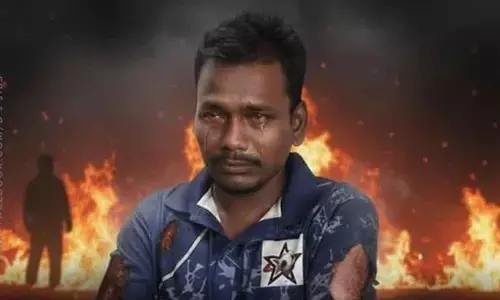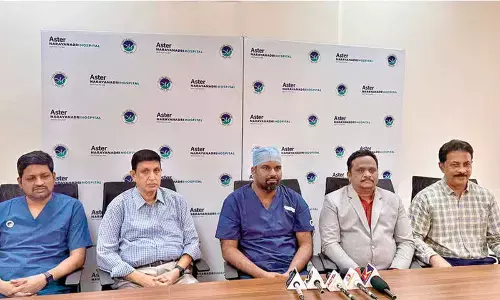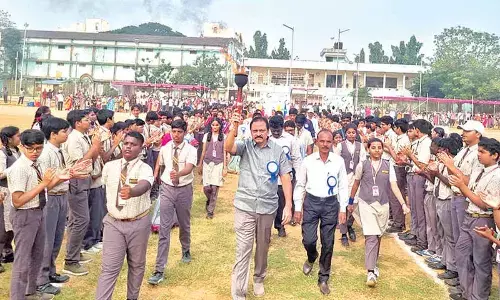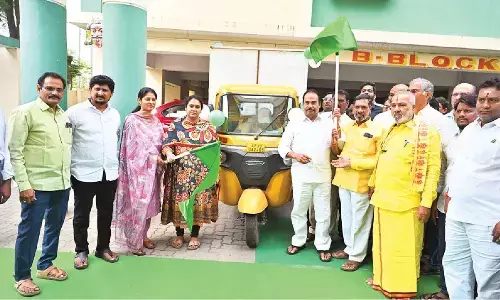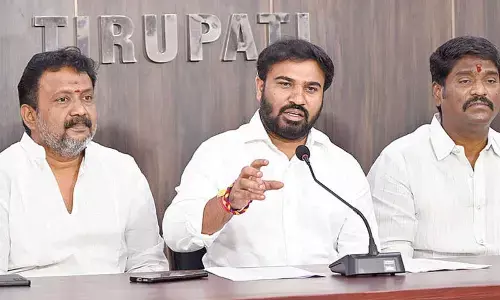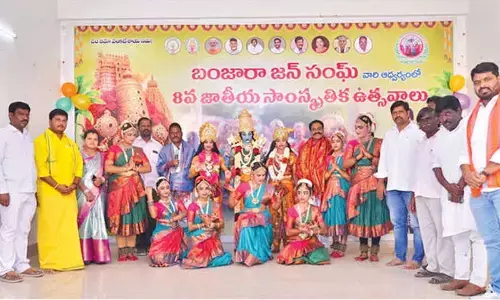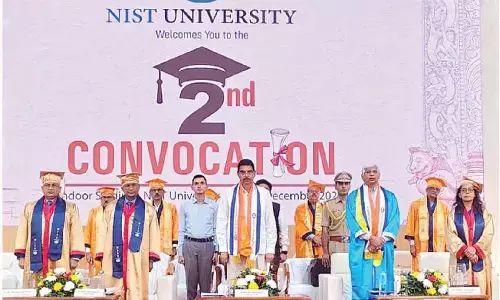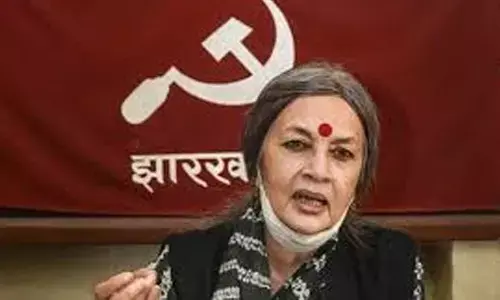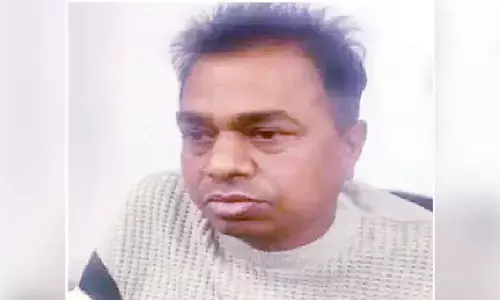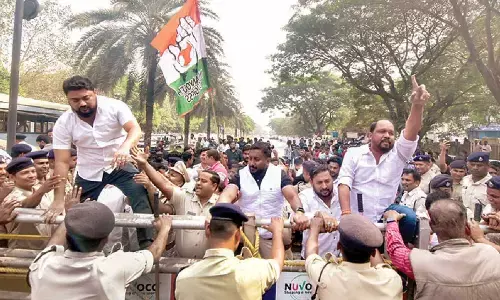Ayodhya case: UP govt tells SC that Muslim groups trying to delay hearing
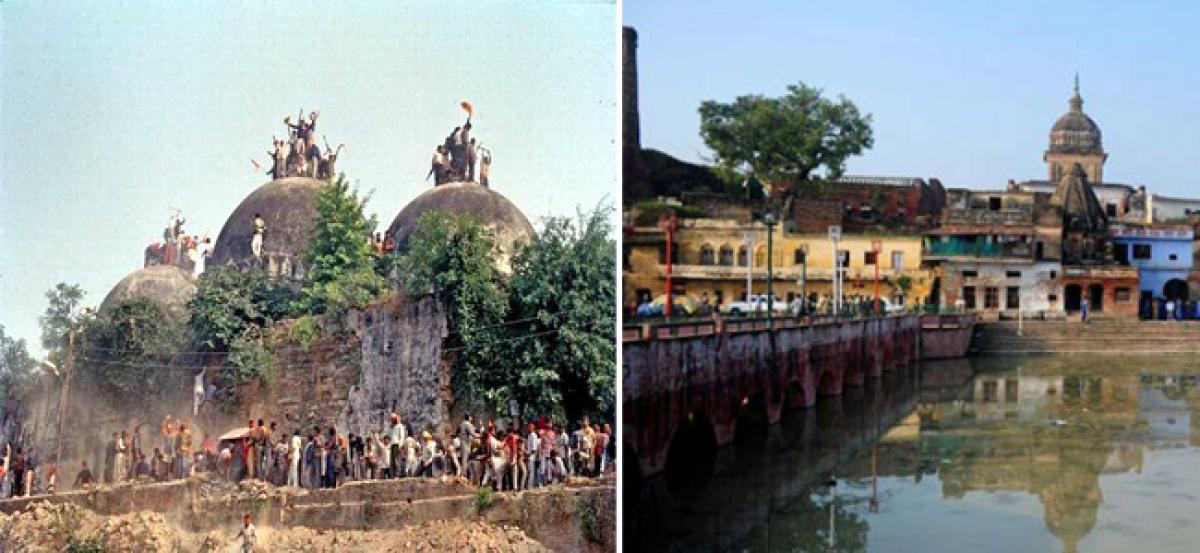
The UP government today told the Supreme Court that some Muslim groups were trying to delay the hearing in the longpending Ayodhya templemosque land dispute case by seeking reconsideration of the observation in the 1994 verdict that a mosque was not integral to Islam
The UP government today told the Supreme Court that some Muslim groups were trying to delay the hearing in the "long-pending" Ayodhya temple-mosque land dispute case by seeking reconsideration of the observation in the 1994 verdict that a mosque was not integral to Islam.
M Siddiq, one of the original litigants of the Ayodhya case who has died and is being represented through his legal heir, had assailed certain findings of the 1994 verdict in the case of M Ismail Faruqui holding that a mosque was not integral to the prayers offered by the followers of Islam. It was argued by Muslim groups before a special bench comprising Chief Justice Dipak Misra and Justices Ashok Bhushan and S A Nazeer that the "sweeping" observation of the apex court in the verdict needed to be reconsidered by a five-judge bench as "it had and will have a bearing" on the Babri Masjid-Ram Temple land dispute case.
Additional Solicitor General Tushar Mehta, appearing for the Uttar Pradesh government, said this dispute has been awaiting final adjudication for "almost a century". He also said that the issue of the observation was neither taken up by any litigant since 1994, nor in the present appeals which were filed in 2010 after the High Court's verdict. "The state of UP respectfully seeks to oppose an apparently belated prayer made at the stage of final hearing of the present First Appeals to refer the matter to a larger bench which demonstratively lacks bonafides...
"The dispute in question, namely the civil rights of the parties with regard to the subject matter of the suit, has been awaiting final judicial adjudication since almost a century," the state said. "None of the parties to the present proceedings or anyone else disputed the correctness or otherwise of the said judgment by taking out any proceedings which may be permissible in law," Mehta said, adding that the inordinate delay in raising the issue was guided by the aim of delaying the proceedings.
He said it was wrong to suggest that the High Court relied upon the observation while deciding the land dispute and had considered 533 exhibits, testimonies of 87 witnesses and 13,999 pages of documents besides referring to around 1,000 books of different languages. The state government said the law decided by this court in the Ismail Farooqi case was "the correct law which does not deserve to be disturbed either by referring it as belatedly prayed for or otherwise". At the outset, senior advocate Rajeev Dhavan, appearing for legal heirs of Siddiq, said the apex court in 1994 had observed that mosques were not integral to Islam without making any "inquiry" or considering Islamic texts on this issue.
"Islam says mosques are integral to faith. Hadith says this, but the Supreme Court says it was not integral to Islam," the senior lawyer said, adding that the Lucknow bench of the Allahabad High Court referred to and relied upon this observation in deciding the civil suit.
He also termed the high court's verdict of dividing the 2.77 acre disputed Ayodhya land equally among the Sunni Waqf Board, the Nirmohi Akhara and Ram Lalla as "panchayat decision". The bench said, at present, it has to decide whether the observation of the apex court in the 1994 verdict was required to be reconsidered by a larger bench or not. The court said it would hear rejoinder arguments of Muslim groups on issues, including what constituted the essential practices of a religion on July 13, the next date of hearing. Earlier, Hindu groups had opposed the plea of their Muslim counterparts that the 1994 verdict holding that a mosque was not integral to the prayers offered by the followers of Islam be referred to a larger bench.
The observations were made in the land acquisition matter pertaining to the Ayodhya site and the apex court had to consider two aspects as to whether a mosque could be acquired at all and whether a religious place of worship like a mosque, church or temple was immune from acquisition if it is a place of special significance for that religion and formed an essential and integral part of that religion. The special bench of the apex court is seized of a total of 14 appeals filed against the high court judgement delivered in four civil suits. A three-judge bench of the Allahabad High Court, in a 2:1 majority ruling, had in 2010 ordered that the land be partitioned equally among three parties -- the Sunni Waqf Board, the Nirmohi Akhara and Ram Lalla.








